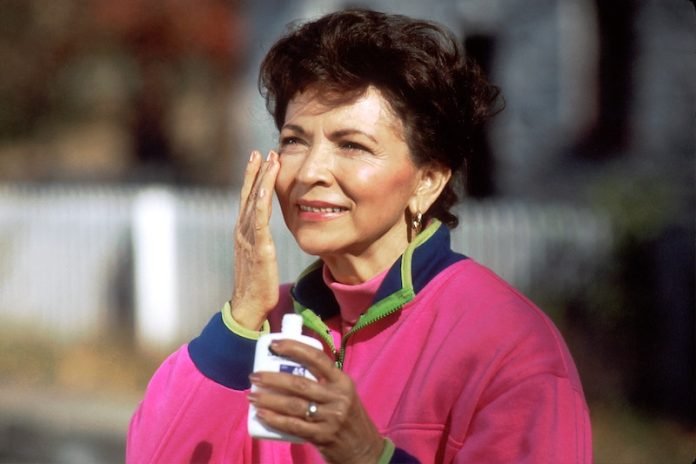
Exercise has been associated with a lower risk for certain types of cancer, such as breast, colon, and prostate.
But skin cancer is a lingering concern for those spending time outside.
People who run, ski, surf, swim, play tennis, cycle, or golf may be at increased risk for skin cancers because of longer and increased exposure to ultraviolet radiation from the sun.
These rays can also intensify when reflected off higher altitudes from the snow and off the water. Sweating and water can also cause sunscreens to rub off and be less effective.
As the days grow longer, and the sun’s rays become stronger and more direct, be mindful that outdoor activities can increase your risk of developing skin cancer. Here’s what you need to know:
The facts about skin cancer
Skin cancer is the most common cancer in the United States. According to the Centers for Disease Control and Prevention, approximately one in five Americans will develop skin cancer before age 70.
The three major types of skin cancer are basal cell carcinoma, squamous cell carcinoma, and melanoma. Basal cell and squamous cell carcinomas are the most common.
A basal cell carcinoma looks like a small pink or red raised bump on the skin or a flat, scaly patch.
Squamous cancer cells usually develop on body parts frequently exposed to the sun, such as the face, neck, ears, lips, and neck. They look like a scaly, reddish, or pink patch, bump, or sore that does not heal.
Melanoma is the third most common skin cancer, is more aggressive, and can spread to other organs.
It begins in cells called melanocytes that produce melanin, the pigment that gives skin, hair, and eyes their color. Melanoma usually appears as an irregularly shaped mole or pigmented patch on the skin.
But here’s the good news: Skin cancers, even melanoma, have a very high cure rate when detected and treated early.
When caught early, the five-year survival rate for localized melanoma is 99%, according to the National Cancer Institute.
Skin protection for outdoor activities
Columbia dermatologist Alexandra Coromilas, MD, recommends staying vigilant, especially if you spend a lot of time in the sun.
“Know your skin’s freckles, lumps, and bumps, and learn to recognize concerning signs, such as any changes in the borders, diameter, or color of your moles, or a new growth that looks distinct or is not healing correctly,” she says.
“If you see any concerning changes, make an appointment for a skin check, where we will do a complete skin examination.”
Although there are no strict guidelines for skin cancer screenings, some people are at higher risk for skin cancer.
“If you have a family history of skin cancer, spend a lot of time in the sun, are fair-skinned, have a history of sunburns or tanning bed use, or are on medications that suppress your immune system, then you should consider being screened,” Coromilas says.
During a skin examination, a Columbia dermatologist will check for the following:
Unevenly shaped moles
Changes in size, shape, or color of existing moles
New moles or growths
Bleeding or itching moles
A spot or sore that does not heal
A mole that looks different from others
Coromilas also advises: “When it comes to prevention, try to avoid direct sunlight between 10 a.m. and 4 p.m., wear UV-protective clothing such as long sleeves and hats, and know how to use and apply sunscreen properly.”
The best way to apply sunscreen:
Apply generously and evenly to all exposed areas of your dry skin.
Use a water-resistant sunscreen if you plan to be in the water or tend to sweat a lot.
Apply sunscreen at least 15 minutes before going out in the sun.
Reapply sunscreen every two to three hours.
Use a product with broad-spectrum UV protection (UVA and UVB). SPF 30 or higher is recommended.
Consider selecting a mineral sunscreen with zinc oxide as the main active ingredient.
And remember sunscreen can also slow the effects and appearance of aging, so use it for your skin’s health and your vanity as well.
“There are simple steps that reduce your risk of getting skin cancer. Protection and prevention go a long way,” Coromilas says.
If you care about cancer, please read studies about supplements that may increase cancer risk, and can vitamin D help prevent or treat cancer.
For more information about health, please see recent studies about how drinking milk affects the risks of heart disease and cancer and results showing the Keto diet may improve blood sugar in cancer patients.



